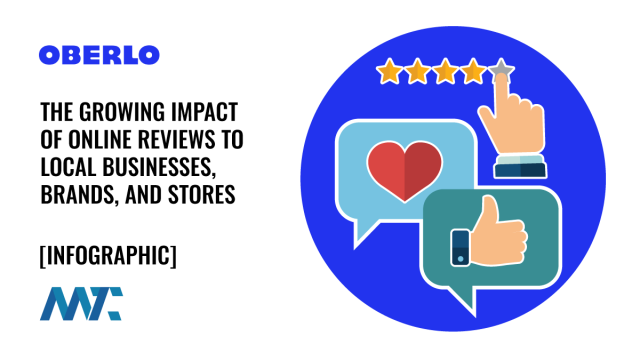Online reviews have become a cornerstone of consumer decision-making and business success. The numbers are staggering regarding how much they can impact your business – whether you’re a local business, an e-commerce site, or even a B2B provider.
88% of consumers worldwide make an effort to consult reviews when discovering a local business.
This fundamental shift in consumer behavior has transformed how businesses across all sectors approach their online presence and reputation management. Beyond consumer perception, online reviews have become deeply integrated into platform algorithms, particularly those of Google Shopping and Google Maps…. and their premium placement within SERPs.
These algorithms now prioritize businesses with consistent review activity, placing higher weight on recency, frequency, and overall rating quality. Response time to reviews has also become a critical ranking factor – businesses that actively engage with their reviewers often see improved visibility in search results and map placements. This algorithmic integration means that review management isn’t just about customer relations anymore; it’s become an essential component of digital visibility and searchability.
Local Businesses: The Neighborhood Trust Factor
Local businesses face unique challenges and opportunities regarding online reviews. Visibility in search results like the map pack is dependent upon recent, frequent, excellent reviews and your response to and engagement with them.
82 percent of consumers say they consult reviews to find out more about local stores.
This high percentage demonstrates reviews’ crucial role in local business discovery and selection.
While more than half (52 percent) of consumers aged from 18 to 54 claim to always consult reviews of local businesses online, just one in ten consumers over the age of 55 do so.
The age demographic plays a significant role in the consumption of local business reviews. This generational divide suggests that local businesses must balance their marketing strategies to effectively reach all age groups.
Review Tips for Local Businesses:
Community Engagement: Respond to reviews with local knowledge and personal touches to reinforce your community presence.
Do NOT Buy Reviews: Buying reviews violates most sites’ terms of service and can result in your visibility being dropped. Buying reviews are typically easy to detect, as they are dumped and sourced from questionable users and locations.
Experience Highlighting: Focus on sharing and highlighting reviews that detail the complete service experience, including before and after photos.
Feedback Integration: Use review insights to improve products, services, and customer experience.
Multi-Platform Presence: Maintain profiles on multiple review platforms while focusing on Google, which is typically the most influential.
Platform Diversification: Maintain presence on multiple review platforms to maximize visibility and reach.
Report Fraudulent Reviews: Politely respond to any fraudulent reviews and report them to be removed. Be sure to provide any facts or evidence of the fraud.
Response Templates: Develop customizable response templates while ensuring each response feels personal.
Response Time: Maintain a 24-hour response window for all reviews, good or bad.
Review Monitoring: Implement a comprehensive review monitoring system across all relevant platforms.
Solicit Reviews: Always solicit customer reviews as part of your service completion, letting customers know they are critical to your success.
E-commerce and Product Reviews
The conversion rates of product pages with reviews are up to 3.5 times higher than those that don’t.
The e-commerce sector sees perhaps the most direct impact from online reviews on sales and consumer behavior. This dramatic increase in conversion rates demonstrates the essential nature of reviews in online retail success.
When it comes to product reviews, quantity isn’t everything:
The majority of consumers (26.8 percent) say that products with between 11 and 50 reviews emit a higher sense of trust.
This sweet spot suggests that focusing on quality over quantity might be more beneficial for e-commerce businesses.
Review Tips for E-commerce Businesses
Authentication Process: Implement verified purchase badges as authenticity drives trust.
Cross-Platform Integration: Aggregate reviews from multiple sources to build comprehensive social proof.
Feedback Integration: Use review insights to improve products, services, and customer experience.
Platform Diversification: Maintain presence on multiple review platforms to maximize visibility and reach
Review Monitoring: Implement a comprehensive review monitoring system across all relevant platforms. Respond to both positive and negative reviews.
Review Volume Management: Focus on maintaining a healthy number of reviews without overwhelming customers.
Response Templates: Develop customizable response templates while ensuring each response feels personal
Solicit Reviews: Include QR Codes in product packaging, links in shipping notifications, as well as follow-up emails.
Strategic Review Placement: Position reviews prominently on product pages to maximize their impact on conversion rates.
User-Generated Content (UGC): Integrate photos and videos from your customers on their reviews.
Online Reviews for B2B
The B2B sector faces unique challenges in the review landscape, where decisions often involve higher stakes and longer-term commitments. Professional reputation and detailed feedback carry particular weight in business-to-business relationships. In the B2B context, response management becomes even more crucial.
97 percent of shoppers who read reviews online also read responses from businesses.
This behavior suggests that thoughtful, professional responses can significantly impact business relationships.
Review Tips for B2B Businesses
Case Study Integration: Combine reviews with detailed case studies to provide comprehensive social proof.
Industry-Specific Platforms: Focus on gathering reviews on industry-specific platforms and professional networks.
Response Strategy: Develop detailed, professional responses to all reviews.
Review Authenticity: Maintain strict authenticity in reviews, as business clients are typically more scrutinizing.
Testimonials: Request well-written quotes from clients who are willing to provide their name, title, image, and company.
74 percent of consumers saying they’ve left an online review for a local business in the past year.
The impact of online reviews continues to grow across all business sectors, and the trend shows no sign of slowing. Businesses that effectively adapt their strategies to manage and leverage online reviews will be better positioned to succeed in an increasingly digital marketplace.
Online Review Statistics
©2024 DK New Media, LLC, All rights reserved | Disclosure
Originally Published on Martech Zone: The Impact of Online Reviews To Local Businesses, Brands, and Online Stores

